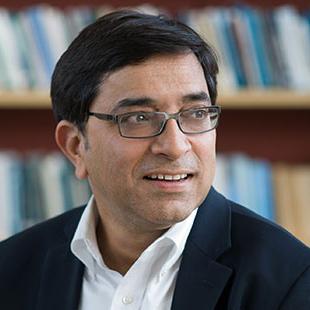One nation, many worlds: Varieties of developmental regimes in India
The development trajectory in Indian states strongly suggests that state governments display distinct preference for certain kinds of development policies. Successive governments in Tamil Nadu and Kerala, for example, have been pro-redistribution irrespective of the nature of party ideology, while both the centrist Congress and center-right BJP led governments in Gujarat have supported pro-growth policies. States like Bihar and Uttar Pradesh, on the other hand, have struggled to provide either forms of development and have instead focused on equalization of social hierarchy through controversial social-engineering mechanisms. These policy priorities fundamentally shape the lives of citizens by defining the limits of their economic and social freedom. But how do different developmental regimes emerge at the first place? Can we conceptualize an objective way to classify states into different regime-types? What are the conditions that sustain these regimes? Our project seeks to explore some of these questions by employing a mixed-method research design that combines a statistical analysis of public policy priorities of all major states in India with a comparative historical analysis of six states.
Findings of this study will engage with policy debates on development in two ways. Scholars and practitioners of development have justifiably debated the effectiveness of trickle-down effects of growth versus welfare-induced growth. Our research however suggests that these two development models are not always policy choices available to practitioners. Rather, they are a product of preferences presented by ruling social coalitions that may not always reflect the needs of the majority in a democracy or align with recommendations of external policy advisors. By exploring the nature of social coalitions that is conducive to either forms of development, this project provides insight into the optimal design of policy intervention thus helping public policy be more politically savvy.
Two, this research further challenges the limitations of the dominant growth-redistribution paradigm by drawing on the messiness of identity politics that often dominates the electoral outcomes, and by extension the goals of the political leadership, in many multiethnic democracies. The literature on the welfare state is based on the implicit assumption that social classes have well-defined material interests, as is reflected by their preferences for degrees of redistribution. The lack of prioritization of social or economic development in states like Bihar and Uttar Pradesh does not fit neatly into our existing development models. Scholars have instead categorized these states as “neo-patrimonial” – states that pursue entrenched personal interests at the expense of public goods. While it is undeniable that the political elite in these states have used their public office for personal benefit , their commitment to social justice is not reflected in their lack of interest in “material” development – social or economic. We argue that the mainstream literature on development is largely silent on a third dimension of freedom – human dignity. Social justice and social development are not necessarily mutually exclusive goals, but if empirical evidence suggests that dignity concerns precede redistributive goals, we need to reconsider our conceptualization of social opportunity as it currently stands.



